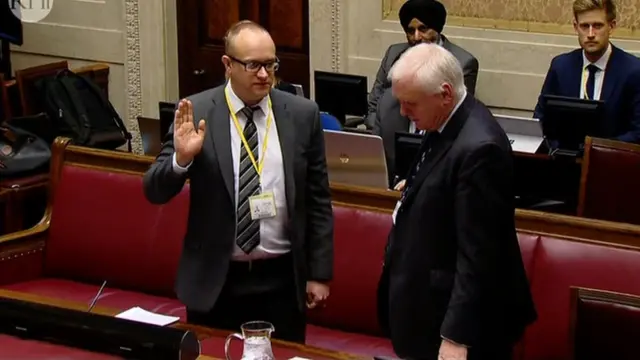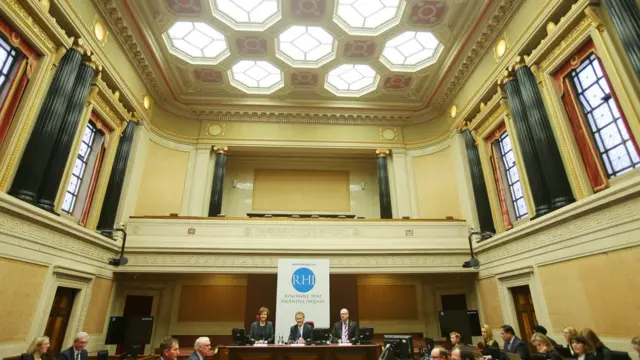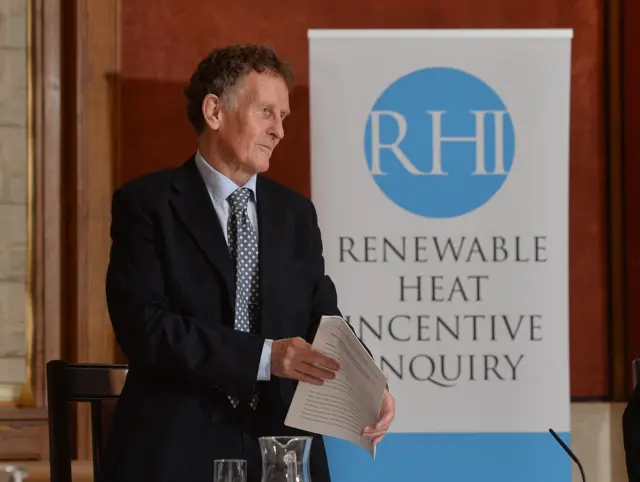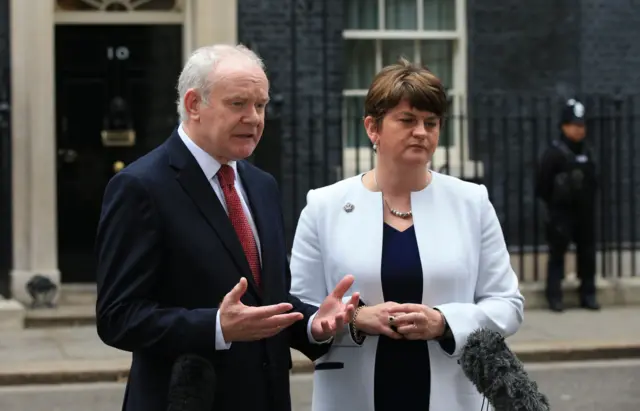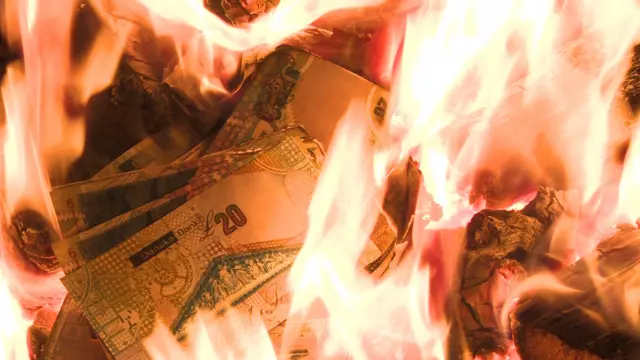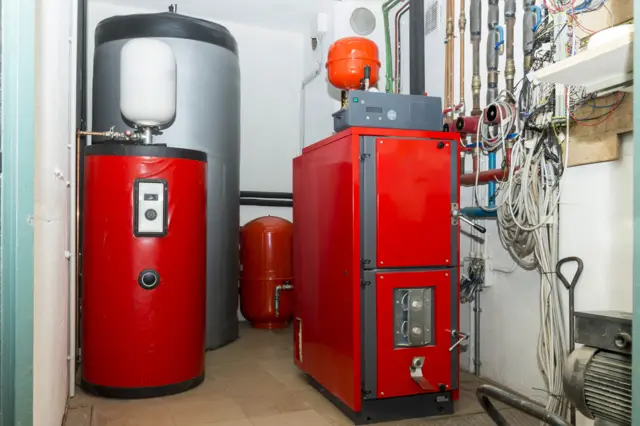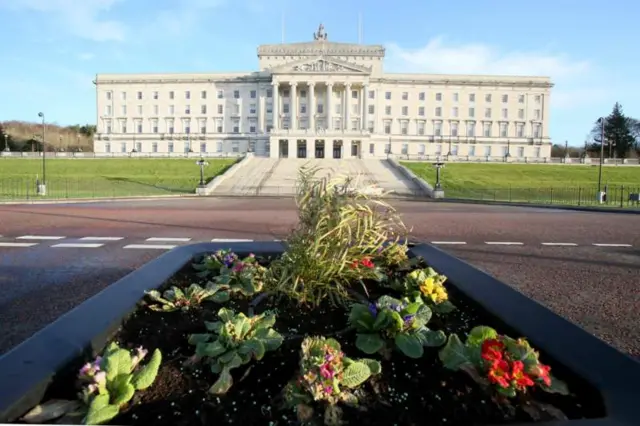'I was reliant on my team's technical experts'published at 10:25 BST 18 May 2018
Mr Aiken asks how Mr Poulton would have gained the necessary technical knowledge when he took over responsibility for a RHI scheme, given his generalist background.
"It's a balance - I think you're reliant to the people that are on your team to be the technical experts, and they are employed as such," he replies.
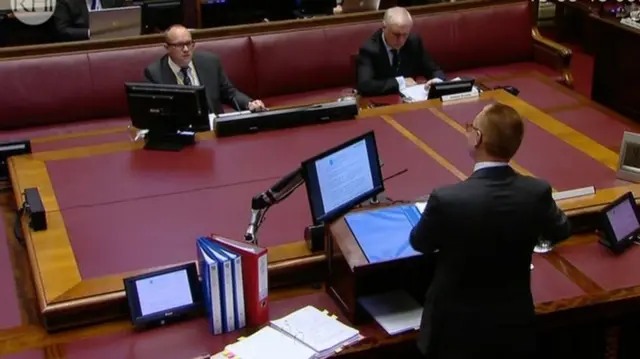 Image source, RHI Inquiry
Image source, RHI InquiryHe says his role at the beginning of the scheme was not so much to understand the technical details but to make sure it was delivered on time and on budget.
Ofgem's arm that was dealing with the administration of energy schemes was growing quickly when he was there - it has 300 employees but that figure was between 200 and 220 when Mr Poulton started there.
